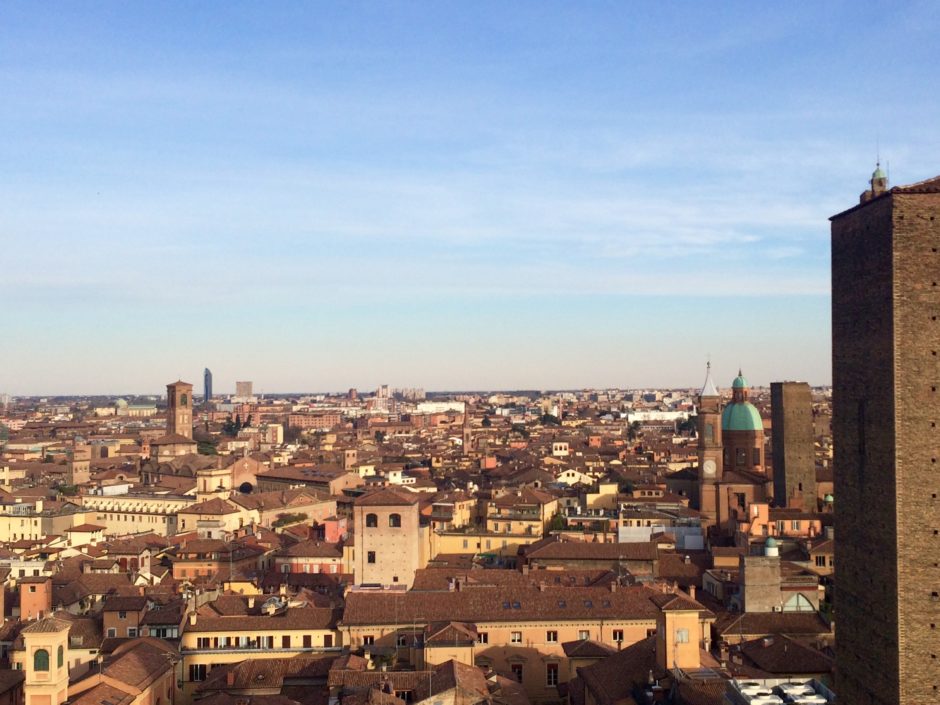I’ve been studying in Italy for over two months, and have become a journaler. I’ve become a dedicated one too, sitting down to write for almost an hour each day in these flexible canvas-covered, orange-detailed notebooks I purchase from a bookstore off Bologna’s main street. In these journals, I recap my day. I write about the food I ate. I spiral into analyzing my emotions, then pick myself up with a second-person pep talk, occasionally feeling strongly enough to address myself by name. I am glad my Italian roommates don’t understand English well nor know the spot in the second drawer of my bedside table where I stack the journals, beside a jar of Skippy peanut butter from home and my monthly food allowance.
What are these journals worth, really? Are they worth all the time that I spend on them? For my own peace of mind, they’re worth it. Journaling feels meditative for me, particularly during this time when I feel too impatient to write fiction. My life right now is unusually full of ups and downs, slow and fast days, all of which are filtered with the allure of something new. I feel committed to pin down these feelings, to have a record of how things changed, how I changed. The record, of course, is imperfect. My journal becomes its own story, a version of the truth, crafted from the decisions I make about what parts of my day to include and emphasize.
In truth, however, I have an ulterior motive for journaling—ammunition for future short stories. I pepper my journal with observations. Runner blesses himself with each shrine he passes on the covered walking path outside the city. Woman in bright yellow puff coat stands up at each train stop, clearly nervous, before finally getting off to be embraced by two little girls and a young woman. Roommate squeals in the kitchen, her voice getting higher and thicker with excitement, yet sounding as if she’s about to cry. Other roommate graduates, wearing a polka dot dress and traditional laurel wreath around her head, before returning to her hometown.
I hoard these observations in my journal, relying on using them in the future or, perhaps more realistically, simply as moments of practice. For me, this practice feels productive. Then again, I question my own self-satisfaction at simply writing down my own life—and others’ lives. Last night, I finished Dave Eggers’ “A Heartbreaking Work of Staggering Genius,” feeling surprised and impressed and uncomfortable with his self-awareness of his own presumptuousness in taking pieces and people from his life and molding them to fit his story (a memoir, but also inherently fiction in the act of crafting a story from imperfect memory). I sometimes feel that discomfort too in filling pages of my journal with notes about others’ habits, in believing that each phase of my feelings could generate a story. Journaling is a self-centered practice, a luxury to have the time to spend on it—and, at the end of the day, perhaps worth my time not because of what it could lead to, but rather because of the strength it gives me now.
 Rachael Allen is a Junior at Bowdoin College studying English and Italian. She serves as editor-in-chief of Bowdoin’s arts and literary magazine, The Quill, and news editor of Bowdoin’s newspaper, The Bowdoin Orient. She loves to write (and read) both fiction and nonfiction, including monthly columns for her local newspaper. You can read these columns as well as other work on her blog: https://rachaelallenblog.wordpress.com.
Rachael Allen is a Junior at Bowdoin College studying English and Italian. She serves as editor-in-chief of Bowdoin’s arts and literary magazine, The Quill, and news editor of Bowdoin’s newspaper, The Bowdoin Orient. She loves to write (and read) both fiction and nonfiction, including monthly columns for her local newspaper. You can read these columns as well as other work on her blog: https://rachaelallenblog.wordpress.com.




